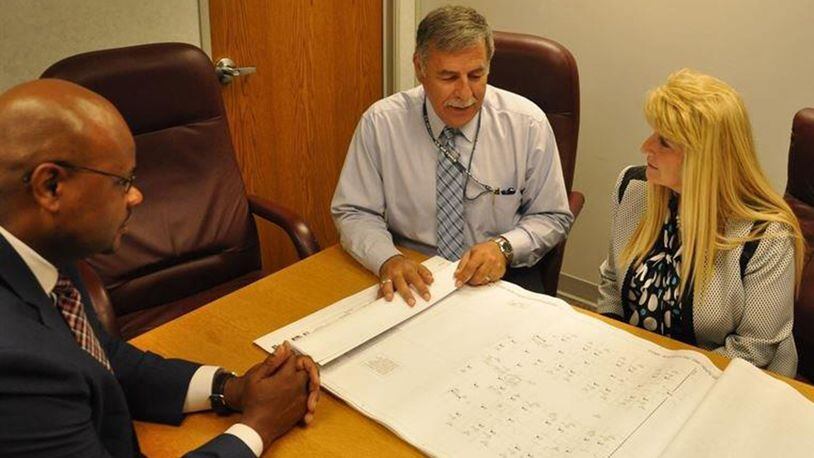That’s where AFSAC’s Construction Branch comes in.
Comprised of experts in civil engineering and program management, the branch works closely with foreign partners in their home countries to build and maintain the structures weapon systems need to operate.
This includes building bases, constructing air fields, strengthening and expanding runways, and designing training facilities, dining halls, living quarters, hangars and maintenance facilities at these locations.
Dr. Carlos Braziel, the Requirements and Small Programs section chief within the Construction Branch, said that understanding the infrastructure required to support weapons systems is important because without the right infrastructure, the system could become a “paper weight.”
“Without a good base or without the right facilities, the partner nation will not be able to perform its mission,” said Braziel. “For example, they may have a runway from the 1960s that may not be able to handle the number of passes from a larger aircraft and needs to be updated. We provide the support to upgrade the runway. In addition, we support the training piece, like flight simulators to keep their pilots up-to-date on the latest tactics and keep their skills proficient. This requires our expertise in integrating the specialized training equipment with the electrical, HVAC (heating, ventilation, air-conditioning), plumbing, etc. in order to support the flight simulator training facility.”
Another key requirement is security.
“If the United States sells a weapons system to a country, the country has to provide security for that weapon system, and we assist the customer with facilities to secure these assets said Jeffrey Todd, Iraq section chief, “We don’t want it [weapons system] falling into the wrong hands.”
Over the past year, experts from the branch have been busy with construction projects spanning multiple countries around the world.
“Since October of 2016, we’ve completed 101 facilities in three different nations, valued at $274 million, all built to U.S. standards,” said Dr. Mike Hassan, chief of the Construction Branch.
He added that currently the team is overseeing construction projects in nine countries valued at $3.2 billion.
In one country, the branch just completed the construction of a large Aircraft Maintenance Training Complex as well as all the back shops and support facilities required to operate and sustain the aircraft for two fighter squadrons, and is in the process of building two other bases with the necessary support facilities including a munitions storage area which would centrally store all munitions for a particular aircraft.
Hassan said that the work the branch does around the world is crucial to America’s national security because it optimizes the interoperability of coalition partners, which improves the ability to confront global threats.
About the Author
